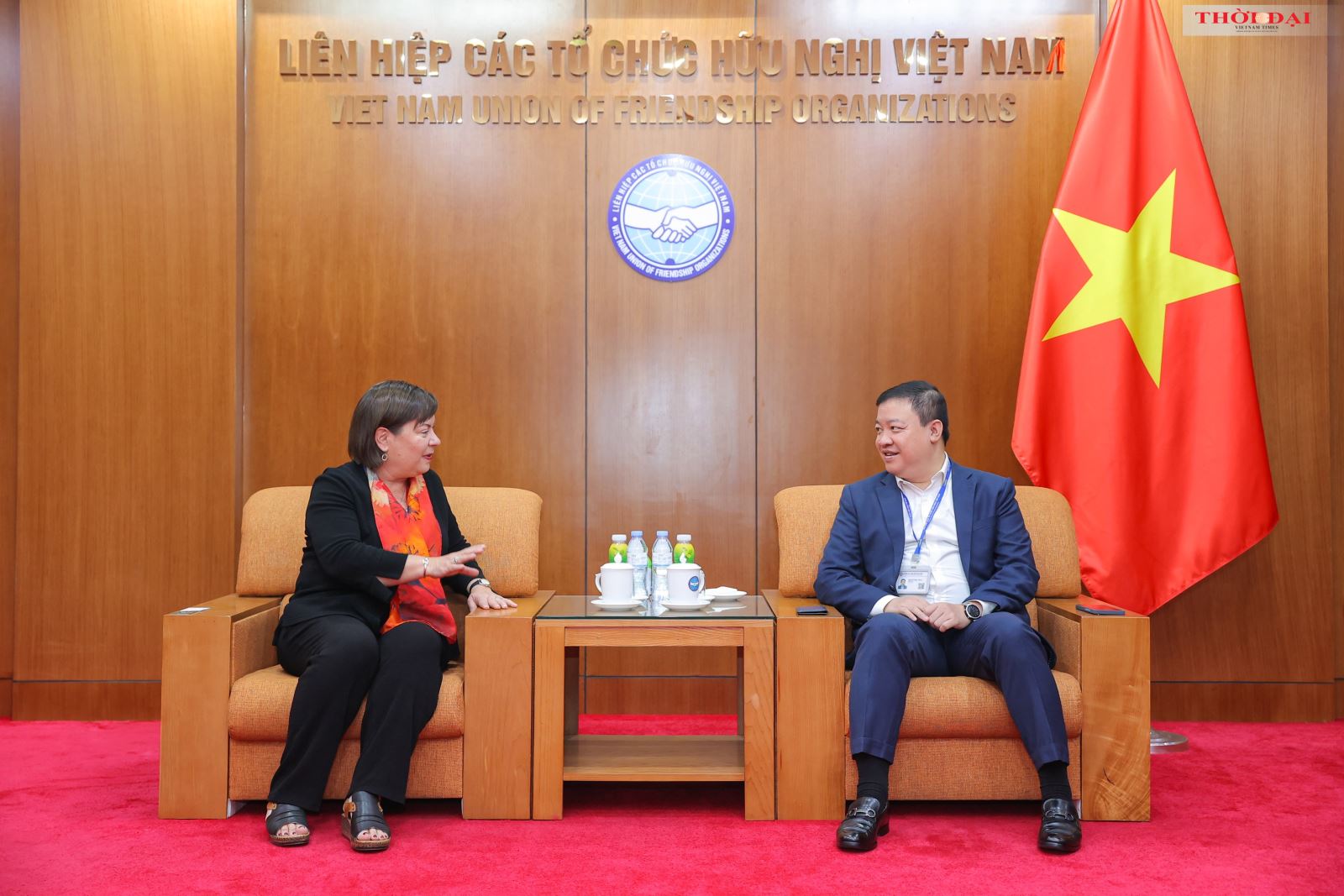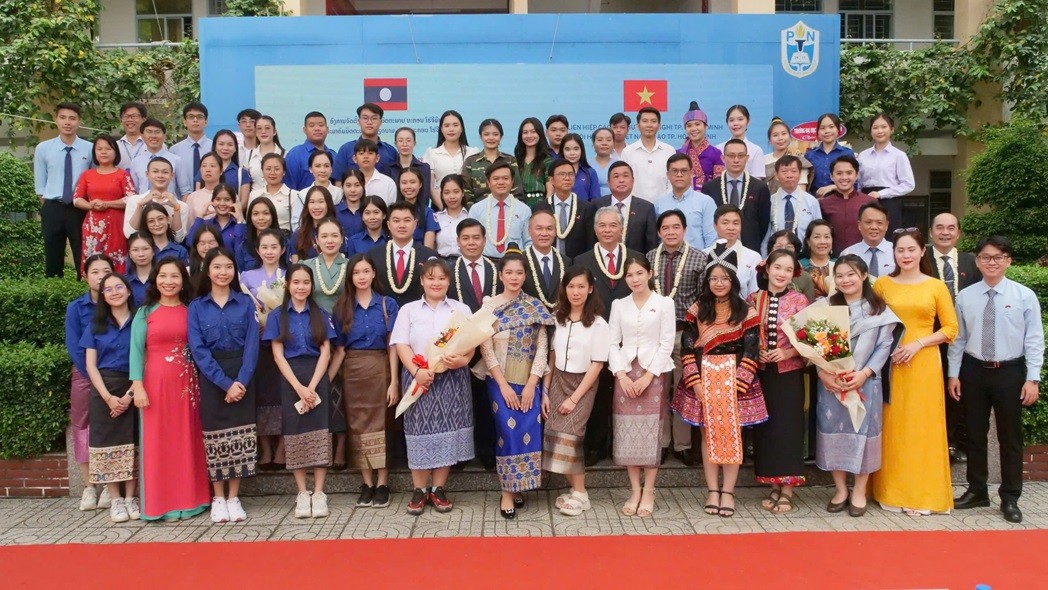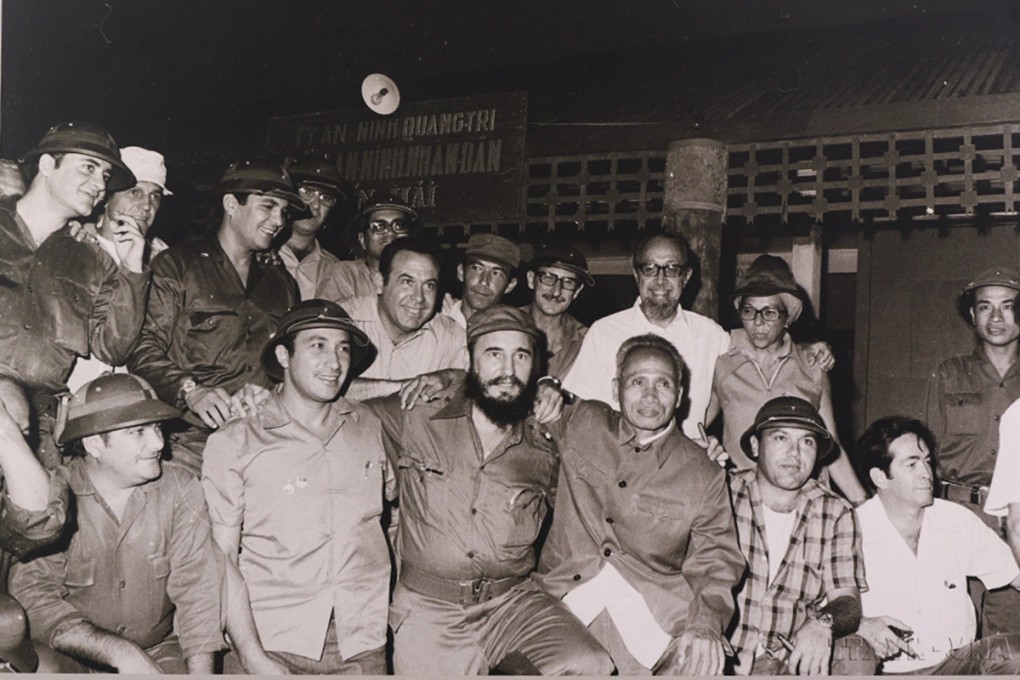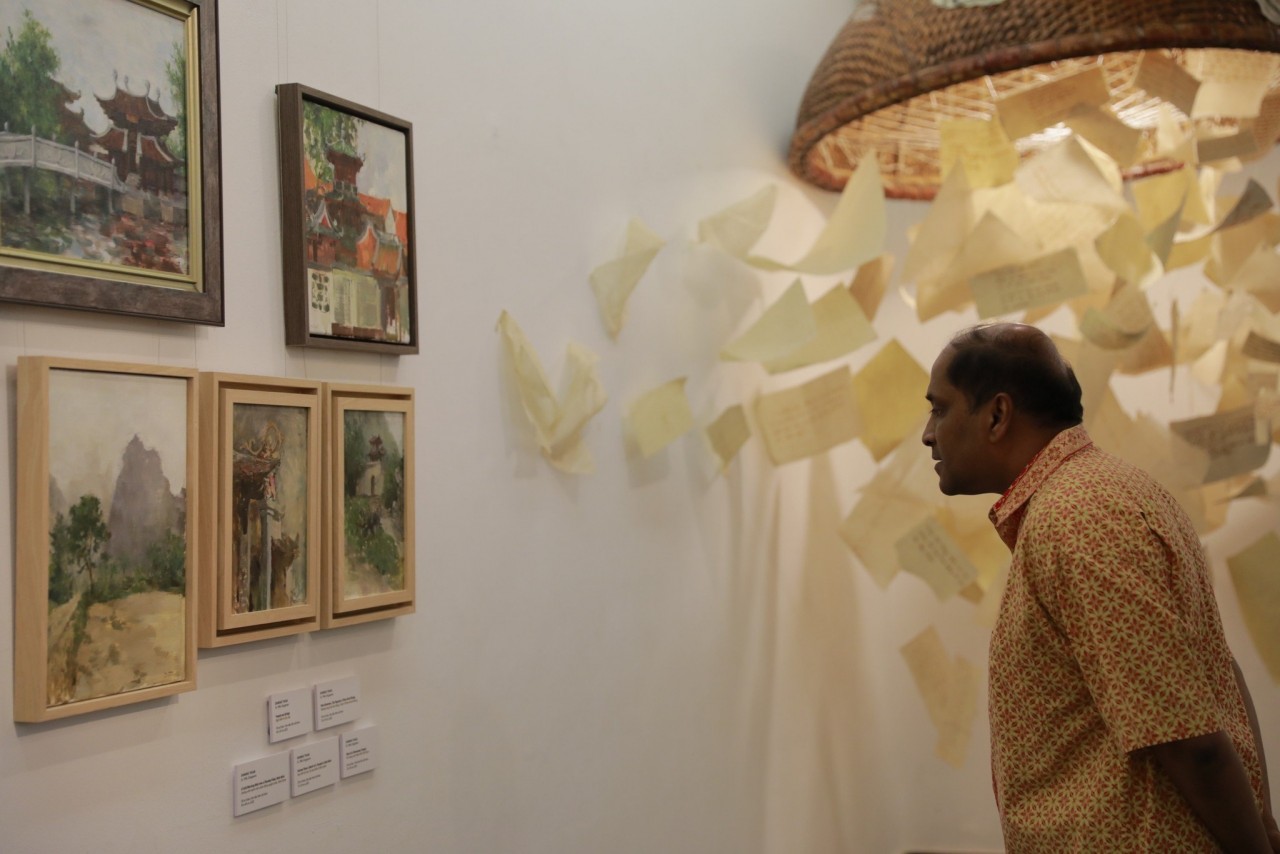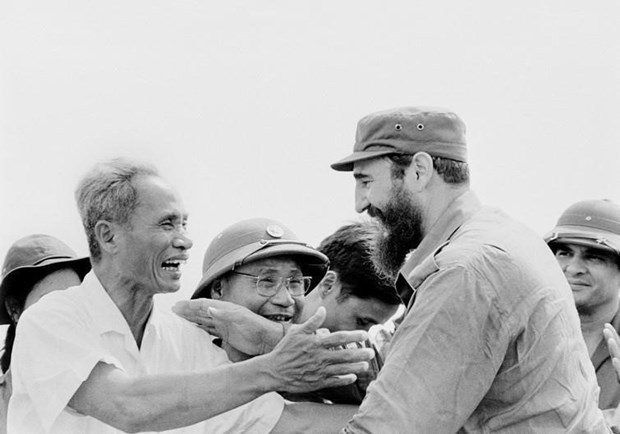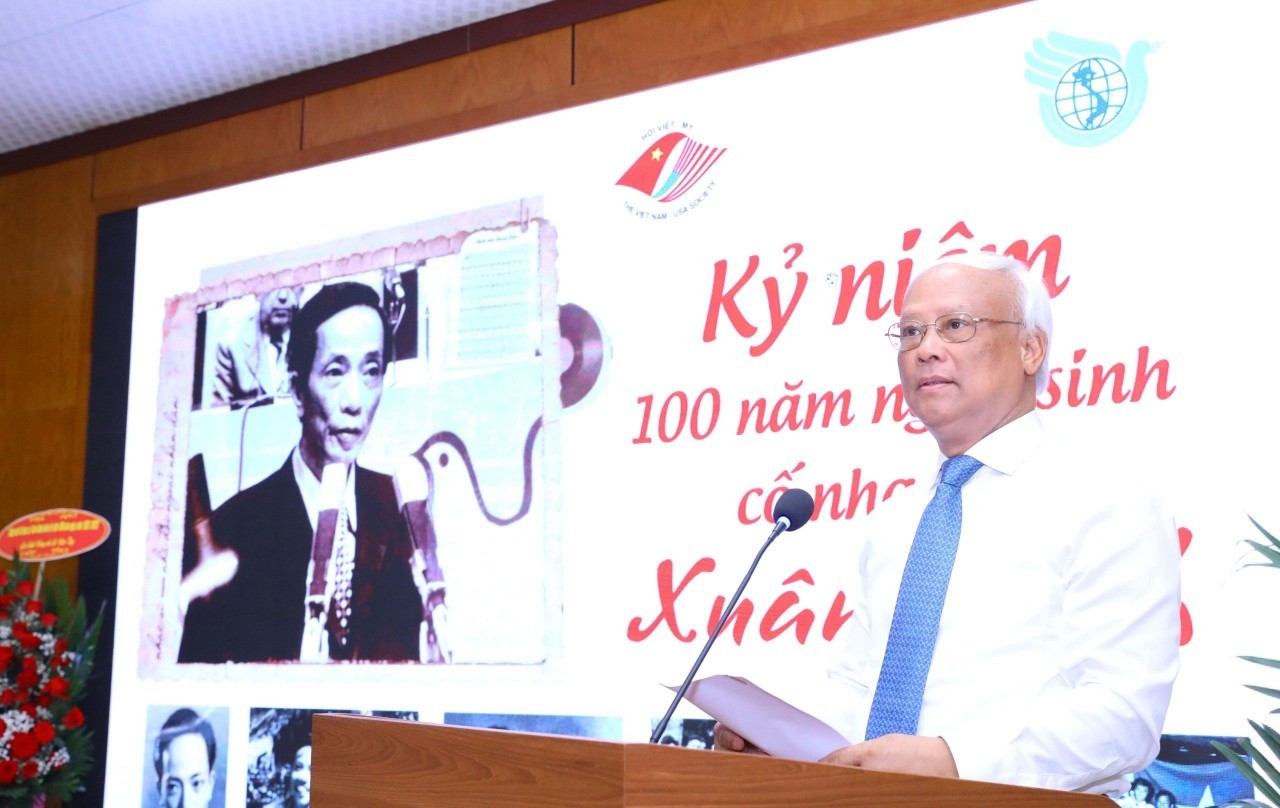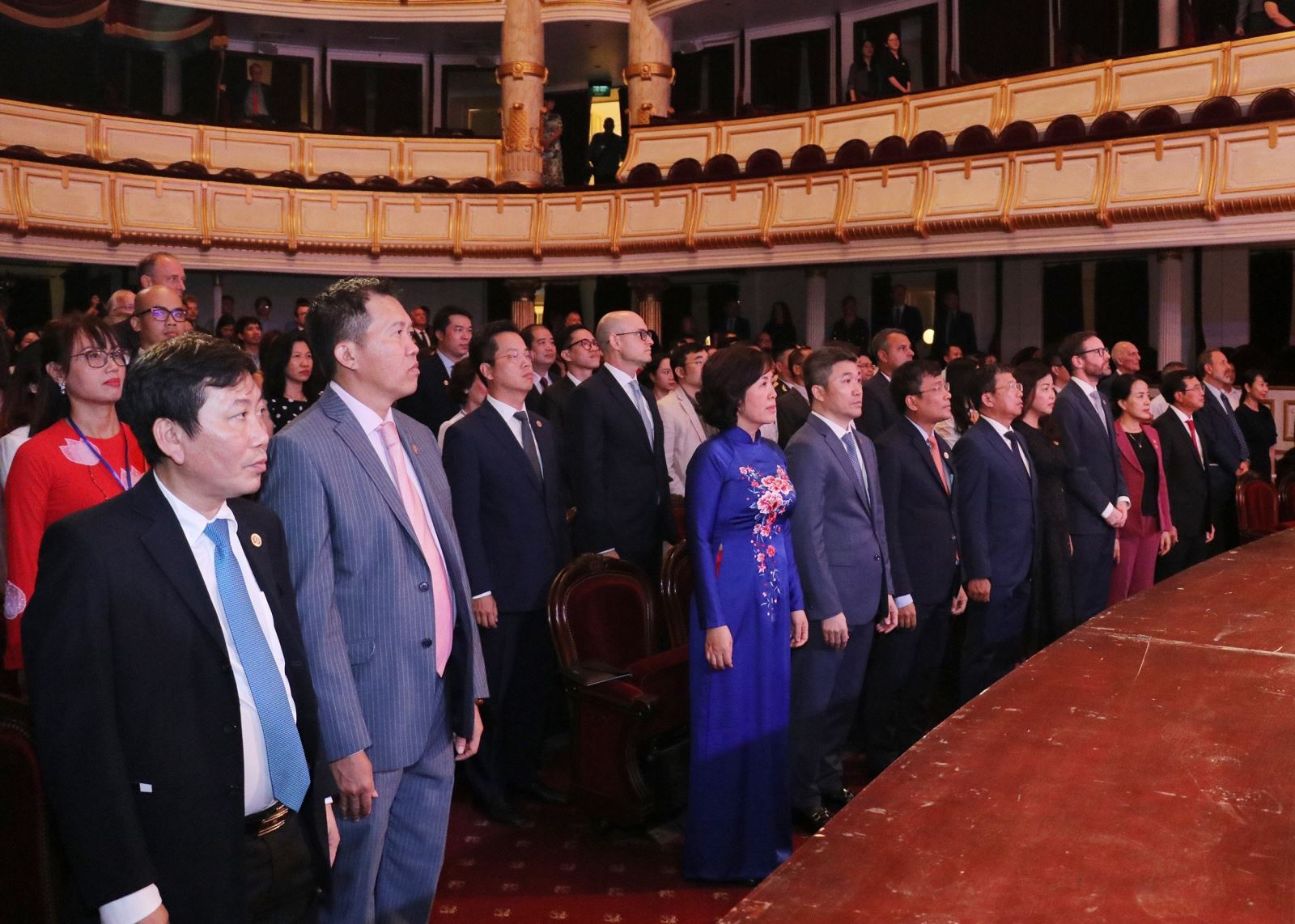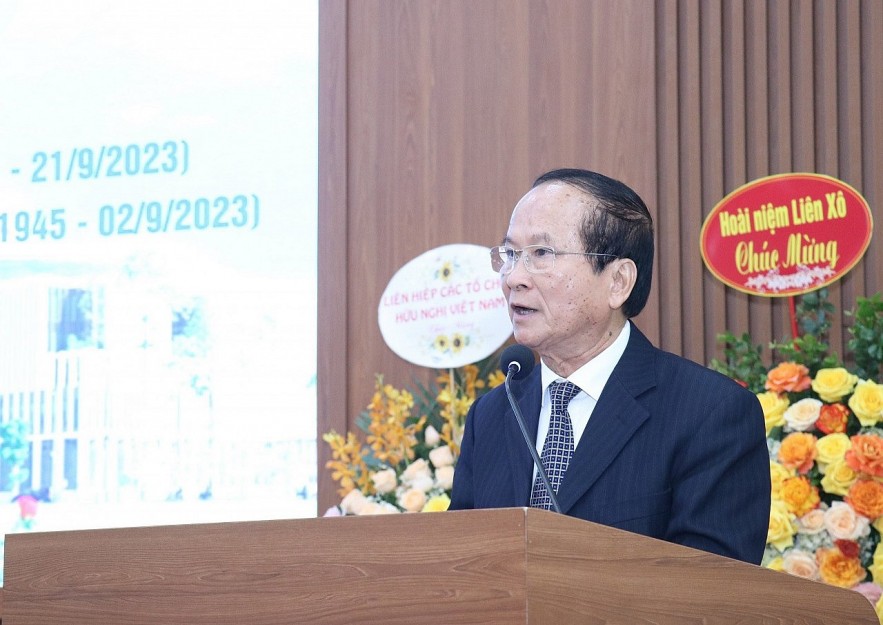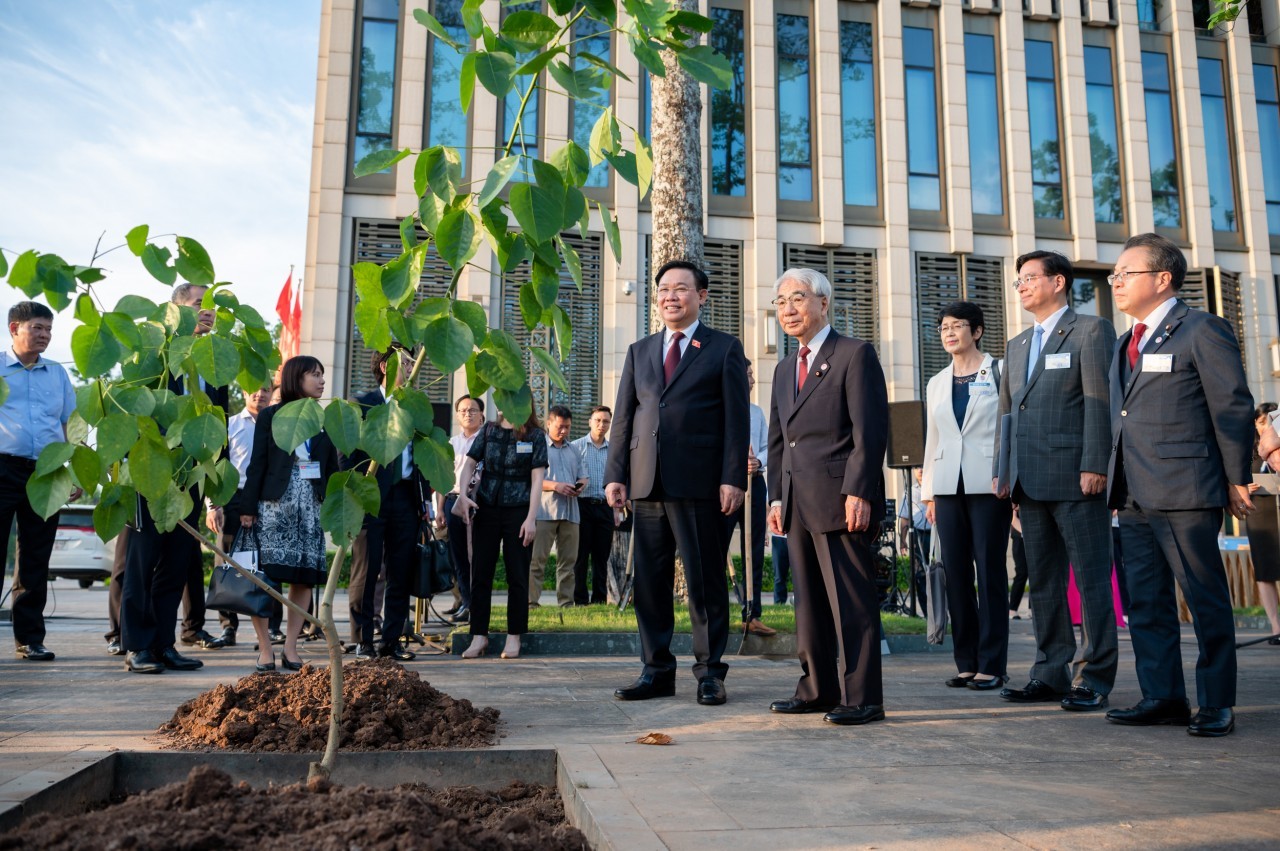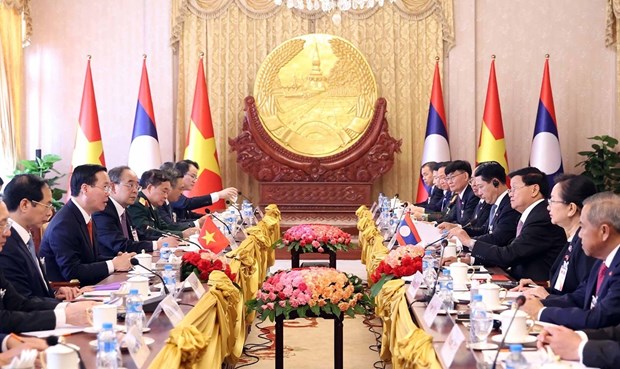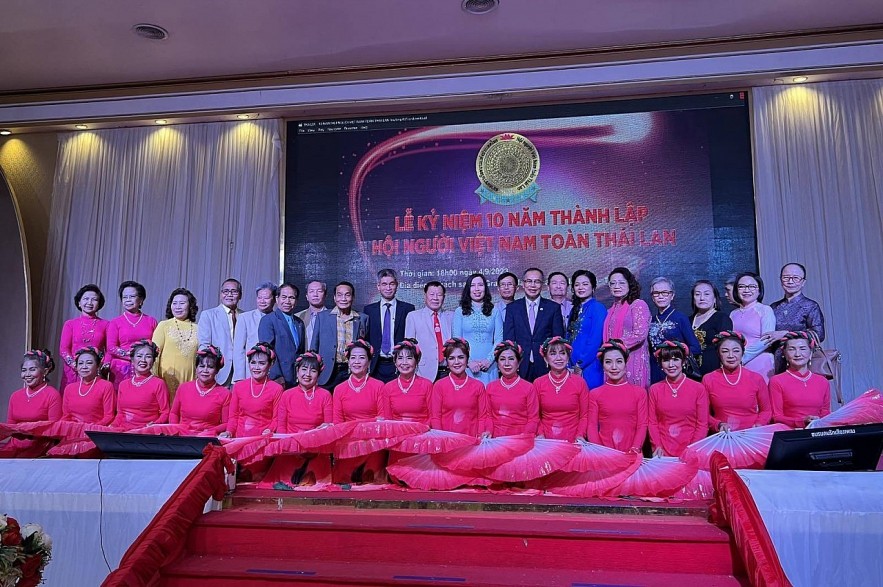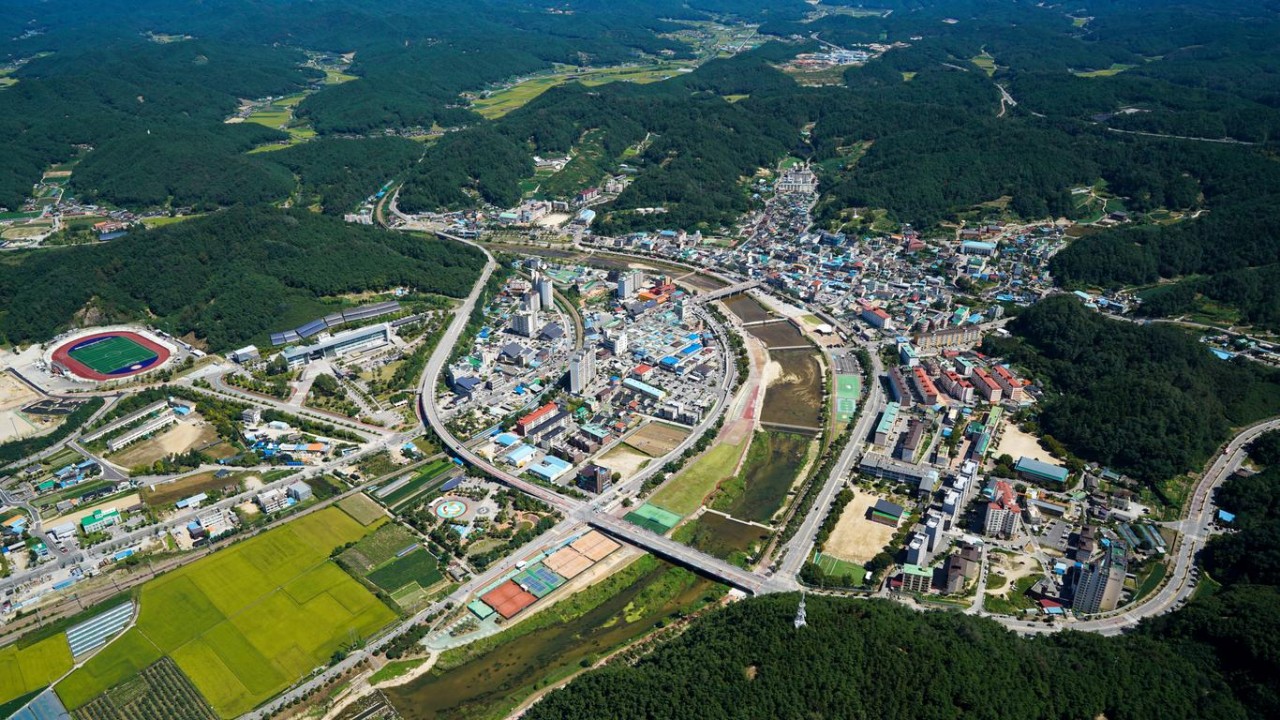Since the reconciliation in 1995, the Vietnam - US bilateral relations have thrived. Ambassador, what do you think this relationship was built from?
History flows like a continuous stream. Each period is a continuation of the previous one. With access to reliable documents to date, US Ambassador Robert Hopkins Miller said the contact between US Ambassador to France Thomas Jefferson (later the 3rd President of the US, 1801-1809) with Crown Prince Nguyen Phuc Canh in France in July 1787 was the first official contact between the US and Vietnam.
According to many American researchers, historians, journalists, writers, and friends such as Stanley Karnow, David Elliot, Kevin Bowen, and Lady Borton, during his 30 years abroad (1911-1941), Nguyen Tat Thanh stayed in Boston and New York City in 1912-1913. He was one of the first Vietnamese people in America in the early 20th century, exactly 110 years ago. He worked as a baker at the Omni Parker House Hotel.
Nowadays, the Omni Parker House Hotel's traditional room still displays many photos of Uncle Ho in his youth, along with the words: "1911-1912 Future Vietnamese Leader Works Parker House bakeshop."
He studied American history and the people's struggle for independence, freedom, and national unity, and witnessed both rapid development and the slum areas of the poor and black people.
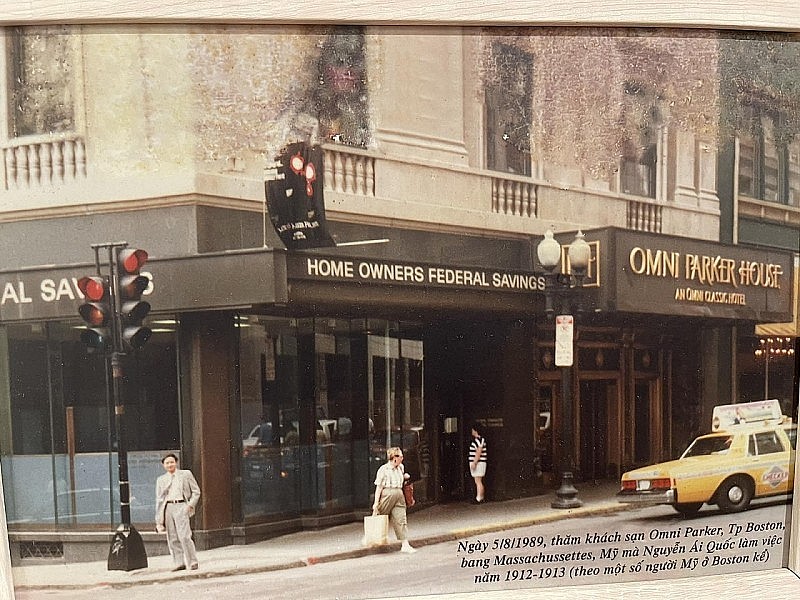 |
| Ambassador Ha Huy Thong visited the Omni Parker House Hotel in 1989. (Photo courtesy of Ambassador Ha Huy Thong) |
According to American historians Marvin E. Gettleman, Jane Franklin, Marylyn Young, and H. Bruce Franklin, on June 18, 1919, while attending the Versey Conference, Nguyen Ai Quoc (better known as President Ho Chi Minh) sent a letter to the US Secretary of State as Head of the delegation calling the USA to return the Annamese people self-determination rights.
In the Declaration of Independence establishing the Democratic Republic of Vietnam, President Ho quoted the United States Declaration of Independence dated July 4, 1776. Just over a month later, on October 17, 1945, the Vietnam - US Association was established, expressing the desire to promote relations with the US from a very early period. In early 1946, President Ho sent a letter calling on US President H. Truman to recognize the Democratic Republic of Vietnam.
It was he who laid the initial foundation for Vietnam-US relations.
Even when relations between the two countries reached the lowest point in the 1960s, President Ho was still optimistic and confident in the future of Vietnam-US relations. This was particularly evident as on January 12, 1967, at the time of raging war, President Ho received two American "messengers," H.S. Hasmaurer and W.C. Bach from the Center for the Study of American Institutions.
The story of the trip was later compiled by two writers who won the prestigious Pulitzer Prize, Harry S. Ashmore and William C. Baggs, into the book "Mission to Hanoi" published in September 1968.
According to the two "messengers," during the reception, President Ho praised the American people for their intelligence, love of peace, labor, freedom, and democracy. He criticized the war, calling for an end to bombing so that peace negotiations could begin.
However, at the same time, President Ho said he told his people to prepare for the day when the Americans would return to help rebuild the country. President Ho even told the two "messengers" to believe him when he said he would be overjoyed to welcome the US President to the Presidential Palace when peace was rebuilt.
This special meeting, which took place 56 years ago, showed that although the relationship between the two countries was going through the saddest chapter, President Ho still had a long-term vision, believed that peace would come, and hoped to welcome the US President to visit.
Welcoming US President Joe Biden on September 10, 2023, and upgrading Vietnam - US relations fulfills President Ho Chi Minh's wishes not only since 1967 as he told two US "messengers," but also since the country's foundation in 1945-1946.
On September 10, 2023, US President Joe Biden visited Vietnam for the first time at the invitation of General Secretary Nguyen Phu Trong. Also on this occasion, Vietnam and the US upgraded relations to a comprehensive strategic partnership. How do think this relationship will benefit the people, Ambassador?
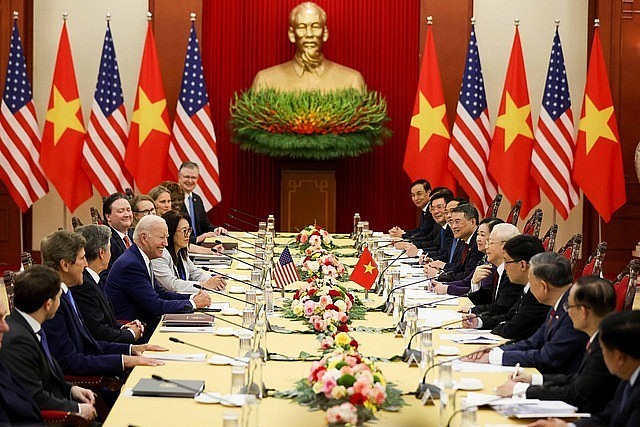 |
| General Secretary Nguyen Phu Trong led the Vietnamese high-ranking delegation and US President Joe Biden led the US high-ranking delegation to a talk at the Party Central Committee Headquarters. (Photo: VGP/ Nhat Bac) |
Vietnam (in its 2013 Constitution) and the US both determine that all power belongs to the people and that they are building a rule-of-law state of the people, by the people, and for the people in accordance with the specific circumstances of each country.
The elevation of the two countries' relationship to a comprehensive strategic partnership is a historic milestone, bringing bilateral relations to more substantial development, for peace, stability, and sustainable development.
It is the people of the two countries who will participate directly and benefit the most from this relationship as shown since the two countries established diplomatic relations (in 1995) and the Comprehensive Partnership (in 2013), from the fields of politics, diplomacy, defense, security, economics, trade, culture, health, education, science and technology, culture, society, sports, to tourism.
People will participate and benefit in many aspects, within this scope, we can see several areas.
First of all, our political relationship is expected to have a strategic stature, creating a more peaceful, stable, predictable, reliable, and favorable environment for bilateral relations to develop in accordance with the expectations and interests of the two peoples.
Second, this new partnership is expected to open up more opportunities for socio-economic development in the two countries.
As our two-way trade has increased from just USD 450 million (when establishing diplomatic relations in 1995) to nearly 40 USD billion (when establishing the Comprehensive Partnership in 2013) and then to about USD 140 billion today, it is expected to grow faster in the near future. While the US has invested more than USD 10 billion in Vietnam, for the first time, Vietnam has had a multi-billion dollar investment project in the US, something no one could have predicted 10 years ago when the Comprehensive Partnership was established.
Third, people-to-people relations between the two countries will develop stronger. The number of people traveling between the two countries increased from tens of thousands per year in the 1990s to several hundred thousand per year today.
The number of students from each country studying in the other country has increased from a few hundred each year since the 1990s to several tens of thousands each year today and is expected to increase significantly in the coming years.
10 years ago when the two countries established a Comprehensive Partnership, no one predicted that the two countries' women's soccer teams would meet at the 2023 World Cup. Now, relations in the fields of culture, society, education, science, and technology, health, sports are expected to have many more unexpected and interesting developments.
Fourth, this new relationship will further develop in areas where more international cooperation is required to deal with non-traditional, transnational challenges such as human trafficking, drugs, cyber security, and especially climate change as the two countries are implementing the United Nations 2030 Sustainable Development Goals program.
It is the people who will benefit the most from sustainable development, a clean, green environment, reduction of poverty, and disease, and more job opportunities.
The above examples also demonstrate the interests of the two peoples, which are the driving force behind the implementation of the Vietnam-US comprehensive strategic partnership. It is the people of the two countries who will enjoy the sweet fruits of this relationship.
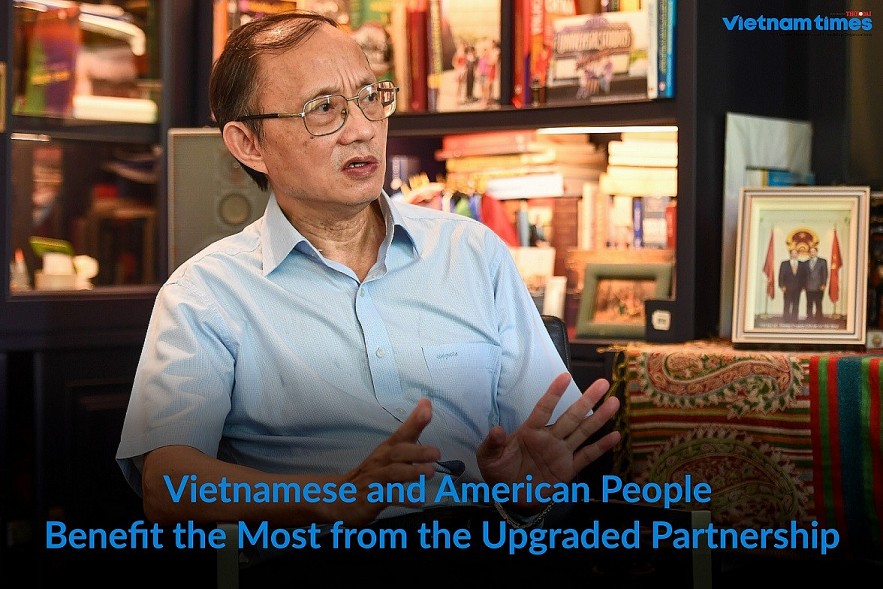 |
| Ambassador Ha Huy Thong. |
In your viewpoint, what needs to be done to develop this comprehensive strategic partnership more substantially?
The establishment of a comprehensive strategic partnership has brought Vietnam-US relations to more substantial development.
I do not know the specific content of this Agreement, but I understand that this new relationship creates a new framework of cooperation that has both breadth and depth of content.
First of all, the two sides need to effectively implement the reached Agreement. The implementation process takes place in the context of a rapidly developing, complex, and unpredictable international situation, so during the implementation process the two sides will cooperate to update and respond flexibly.
Long Pham / Source: Vietnamtimes

